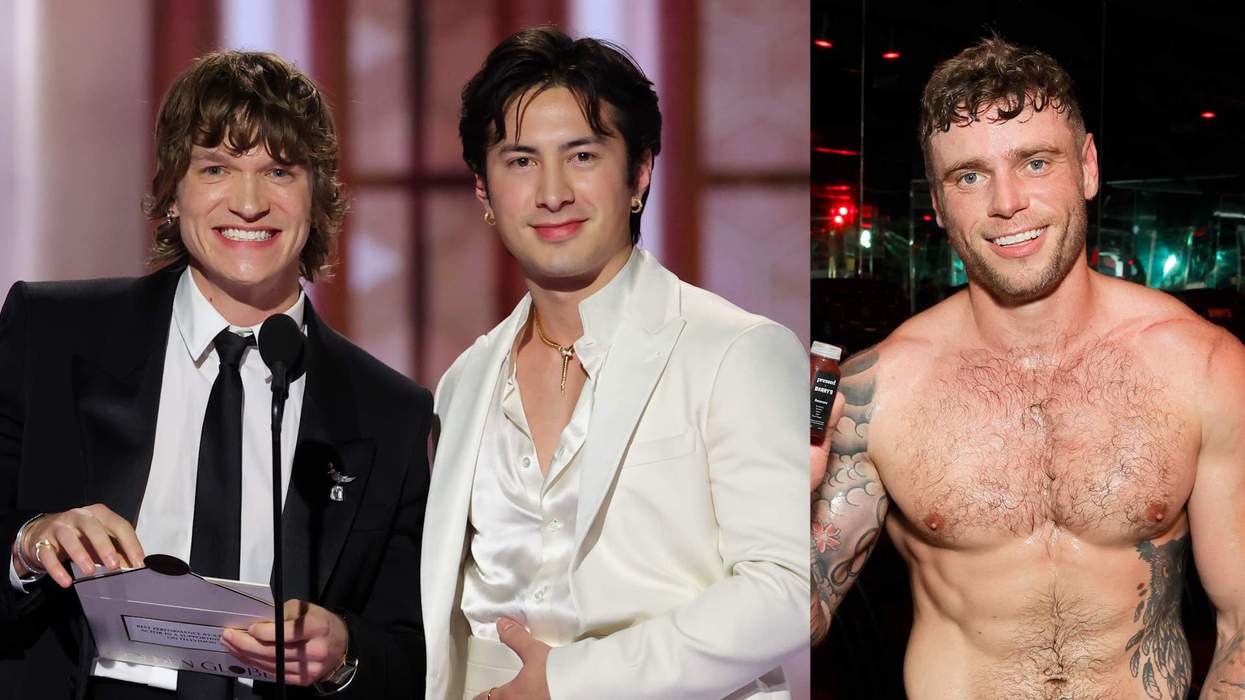"When I suffer, I suffer like a dumb animal, wrote Christopher Isherwood in his diary as he struggled with his relationship with the much younger Don Bachardy. It was the early 1960s, and although both men had agreed to an open relationship from the beginning, the rules changed depending on their states of mind and the seriousness of the outside affair. Isherwoods years of studying the Hindu philosophy known as Vedanta did not give him the peace he needed. Also, his writing was going badly. He had disguised his sexuality in his last novel, Down There on a Visit, but it was still rejected by reviewers and readers for having too many gay characters. He decided his next book would be straight. The Englishwoman was the story of an English war bride living unhappily in California and wanting to return to England. But the bit of secret autobiography -- he didnt know if he and Bachardy would stay together -- wasnt enough to bring the book to life. He felt himself floundering again.
Like many quarreling couples, Isherwood and Bachardy remained each others best confidante, even when the problem being discussed was the listener. One day at the beach, Isherwood complained to Bachardy that the new book was slipping away. Bachardy asked what he wanted it to be about. Isherwood told him. And in no time at all the blindingly simple truth was revealed that the book isnt about the Englishwoman but about the Englishman -- me, he recorded in his diary. Bachardy suggested he give this womans problems to someone more like himself, a middle-aged gay man. Isherwood didnt hesitate, despite his experience with Down There. He went back to his manuscript, retitled it The Englishman, and began again. Indirection hadnt protected him on the last book: He might as well go all the way. He had to tell the truth or be silent.
He did not write as the first person Chris this time, but in the third person. Fifty-eight-year-old George (with no last name) is and isnt Isherwood. He lives in the same house and Santa Monica neighborhood where Isherwood and Bachardy lived. Like Isherwood he occasionally teaches literature at a state college. But a huge difference is that George is alone. He is a gay man whose lover has recently died. It was both a painful fantasy for the author and a quiet act of revenge.
Isherwood worked on the new book over the next year. Life with Bachardy remained difficult: The painter had two serious affairs in the same period -- one with a man named George. Isherwoods fear of losing Bachardy enabled him to imagine the loneliness that drives the book. But it was Bachardy who suggested a new title: A Single Man.
This lean, precise novel following a single day in the life of one individual is like a smaller, more human version of Ulysses by James Joyce. Only this time Leopold Bloom lives not in Dublin but Los Angeles. And hes no longer Jewish and straight, but English and gay. Georges sexuality is just one part of his life, dispersed through a hundred other parts, yet it is a key part of Georges identity. The mere sight of two shirtless tennis players in tight white shorts can break through his melancholy and give life meaning for him.
Now a literary classic, with Tom Fords much-garlanded movie adaptation out this month, the book received a remarkable mix of reviews when it was first published in 1964, ranging in tone from progressive intelligence to old-fashioned bigotry. The New York Herald Tribune called it a small masterpiece. A bad review in the Los Angeles Times was headlined, Disjointed Limp Wrist Saga. But the book stood the test of time.
In his neighbors eyes, George is a crabby old bachelor -- like an old maid. But Isherwood quickly climbs behind that facade and gives us Georges thoughts, often the authors thoughts, a headful of private satires about American life in 1962.
Georges anger with the heterosexual majority erupts in comic fantasies of vengeance on his drive to the college. His class in English literature is full of minorities: female, black, Asian, Jewish, elderly, and one gay boy. They discuss Aldous Huxleys After Many a Summer Dies the Swan. An older Jewish refugee asks if Huxley was anti-Semitic, based on a line in the novel. George says no, then jumps ahead in an argument hes been having with himself: George declares that minorities are different from each other and the liberal idea that all people are brothers and sisters under the skin is a lie.
And Ill tell you something else. A minority has its own kind of aggression. It absolutely dares the majority to attack it. It hates the majoritynot without a cause, I grant you. It even hates the other minorities, because all minorities are in competition: each one proclaims that its sufferings are the worst and its wrongs are the blackest. And the more they all hate, and the more theyre all persecuted, the nastier they become! Do you think it makes people nastier to be loved? You know it doesnt! Then why should it make them nice to be loathed? While youre being persecuted you hate whats happening to you, you hate the people whore making it happen; you are in a world of hate. Why, you wouldnt recognize love if you met it! Youd suspect love. Youd think there was something behind it -- some motive -- some trick.
Its an amazing speech. George knows firsthand how persecution makes a person angry and crazy. If oppression produced saints, wed want everyone to be oppressed. And George sees homosexuals as a minority like blacks, Jews, and Asians -- he is years ahead of his time in seeing the similarities and the conflicts.
We follow George through the rest of his day. He visits a woman dying of cancer in the hospital, Doris, who once had an affair with his dead lover Jim. He sits with her, holding her hand, sorry he cant hate her anymore. As long as one precious drop of hate remained, George could still find something in her of Jim. For he hated Jim too, nearly as much as her, while they were away together in Mexico. That has been the bond between him and Doris. And now it is broken. And one more bit of Jim is lost to him forever.
George escapes the shadow of death to visit the gym -- not a shiny industrial gym of our time but a shabby place where two other men and a 12-year-old boy amiably lift weights together. He has dinner with his old friend Charlotte. Afterward, instead of going home, George goes down to a bar by the ocean, where he finds Kenny Potter, a tall, skinny student from his literature class. Kenny has had a fight with his girlfriend. The two get drunk together, and Kenny suggests they go back to Georges place. We -- and George -- think we know where this is going, especially when professor and student share a drunken nude swim in the ocean. But the novel takes a more interesting, devious twist before it ends with George at home in bed alone.
George smiles to himself with self-satisfaction. Yes, I am crazy, he thinks. That is my secret, my strength.
And he falls asleep. The God-like narrator of the opening pages returns to ask and answer questions about the future, much like the Q&A chapter near the end of Ulysses. The narrator steps back further to compare individuals to rock pools of consciousness beside a vast ocean. Then the narrator closes by imagining Georges death. He might die in his sleep from a heart attack. The narrator gives a few clinical details.
Then one by one the lights go out and there is total blackness. And if some part of the nonentity we called George has indeed been absent at this moment of terminal shock, away out there on the deep waters, then it will return home to find itself homeless. For it can associate no longer with what lies here, unsnoring, on the bed. This is now cousin to the garbage in the container on the back porch. Both will have to be carted away and disposed of, before too long.
The lessons of Vedanta, soul, and death are translated into the homeliest metaphor imaginable. Its shocking in its matter-of-factness, and liberating too.
Isherwood gives the world a fully realized gay man and makes him ordinary by submerging his sexuality in the universal buzz of metaphysical being. His calm, cool overview produced a book that has not dated. George remains as fresh and immediate as a friend seated across from us at our kitchen tableor even the person we glimpse in our own mirror.
A Single Man is now in theaters. Christopher Bram is a novelist whose first collection of essays, Mapping the Territory, has just been published by Alyson Books.Send a letter to the editor about this article.
Search
Latest Stories
Sign me up!
See what's new and hot in queer entertainment, in your inbox three times a week.
@2026 PUBLISHING INC
ALL RIGHTS RESERVED
ALL RIGHTS RESERVED
By continuing to use our site, you agree to our Privacy Policy and Terms of Use.
The Latest
More For You
Most Popular
Load More
@2026 PUBLISHING INC
ALL RIGHTS RESERVED
ALL RIGHTS RESERVED






























I watched the Kid Rock Turning Point USA halftime show so you don't have to
Opinion: "I have no problem with lip syncing, but you'd think the side that hates drag queens so much would have a little more shame about it," writes Ryan Adamczeski.